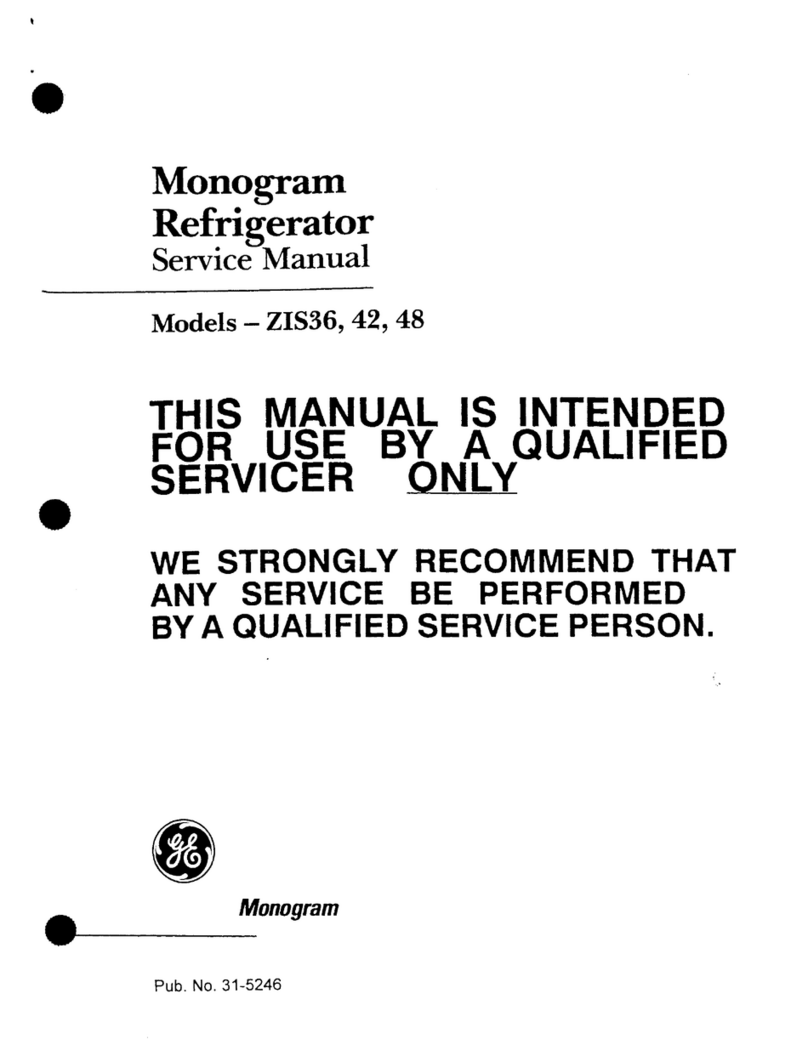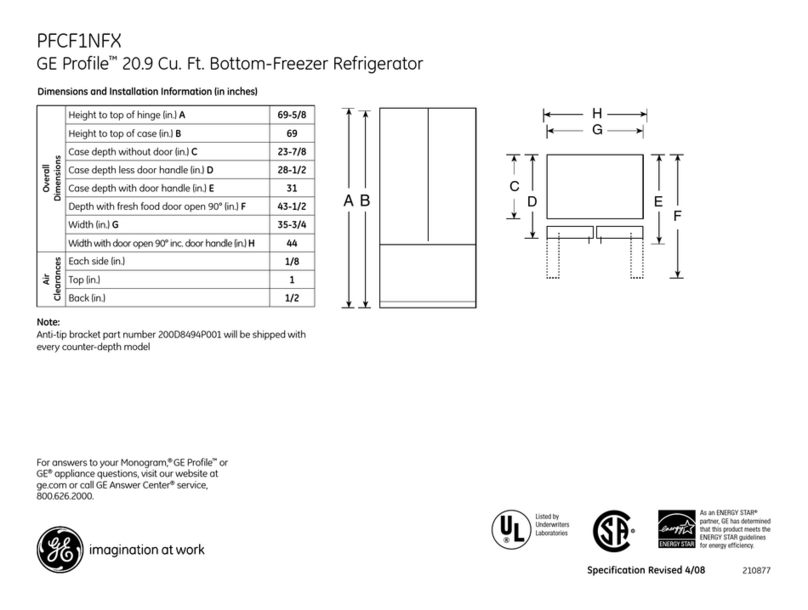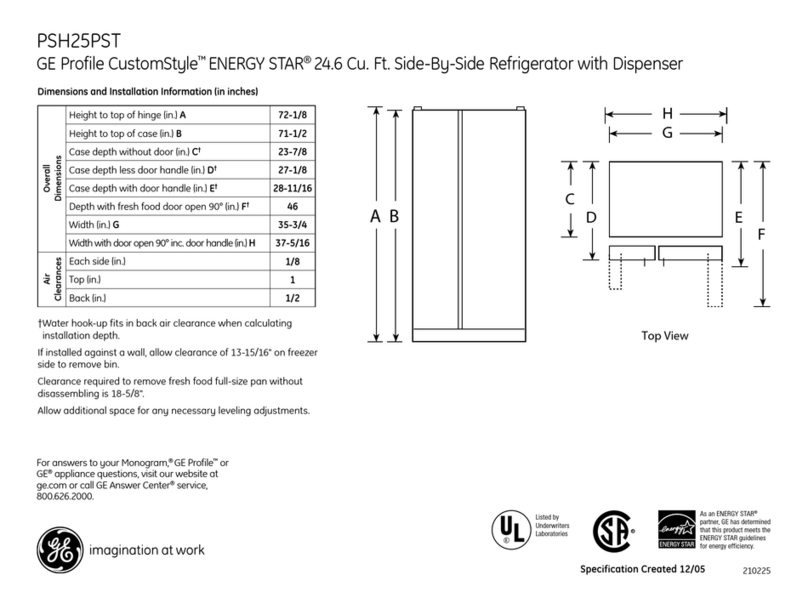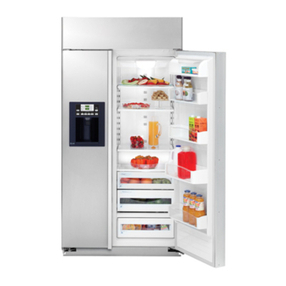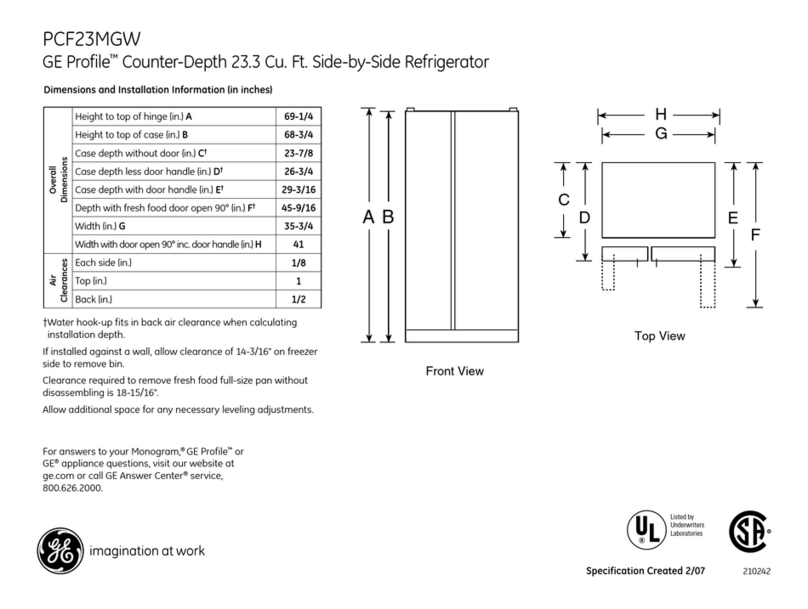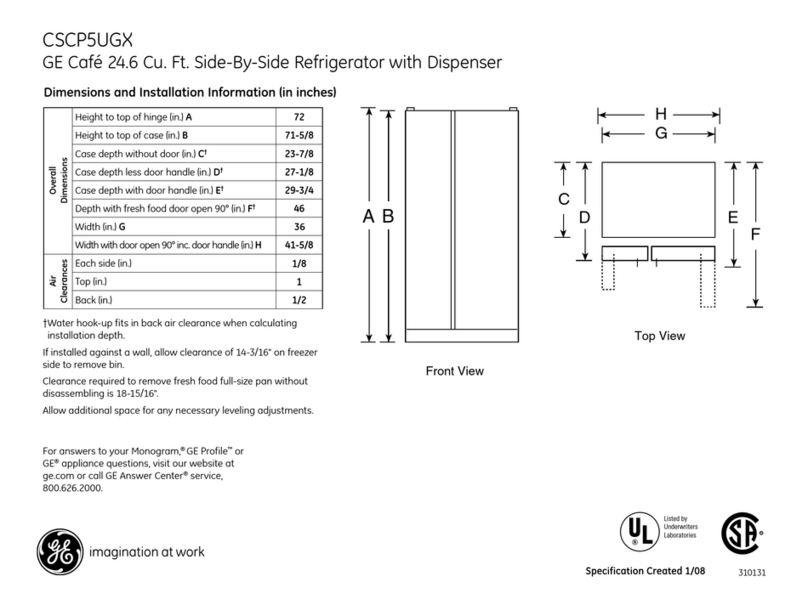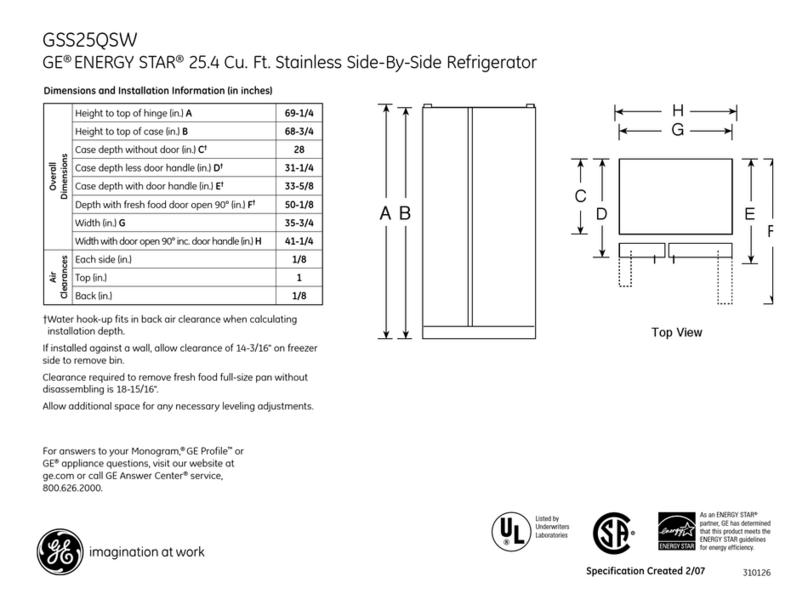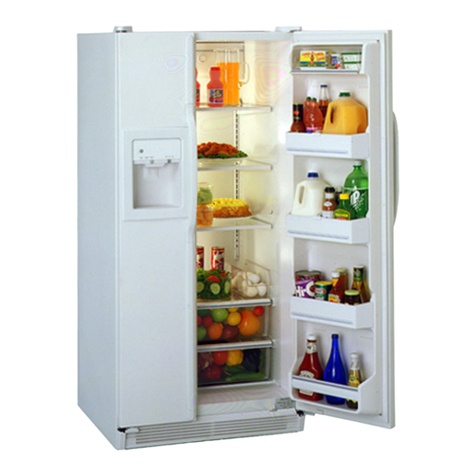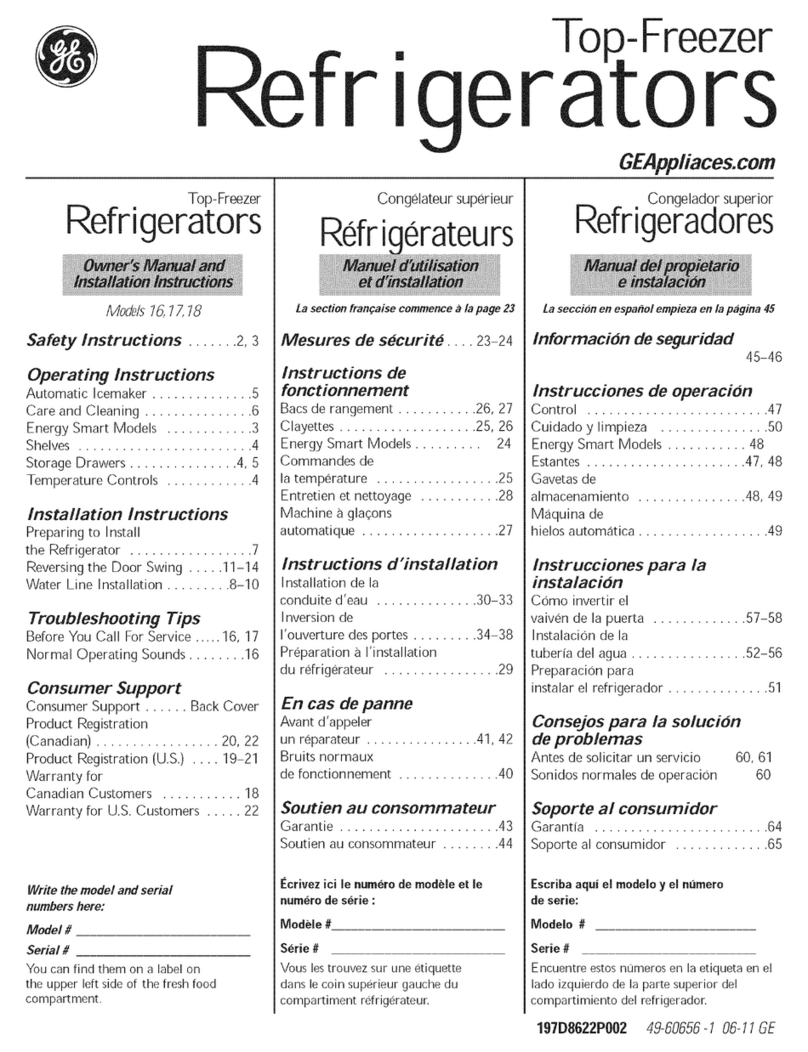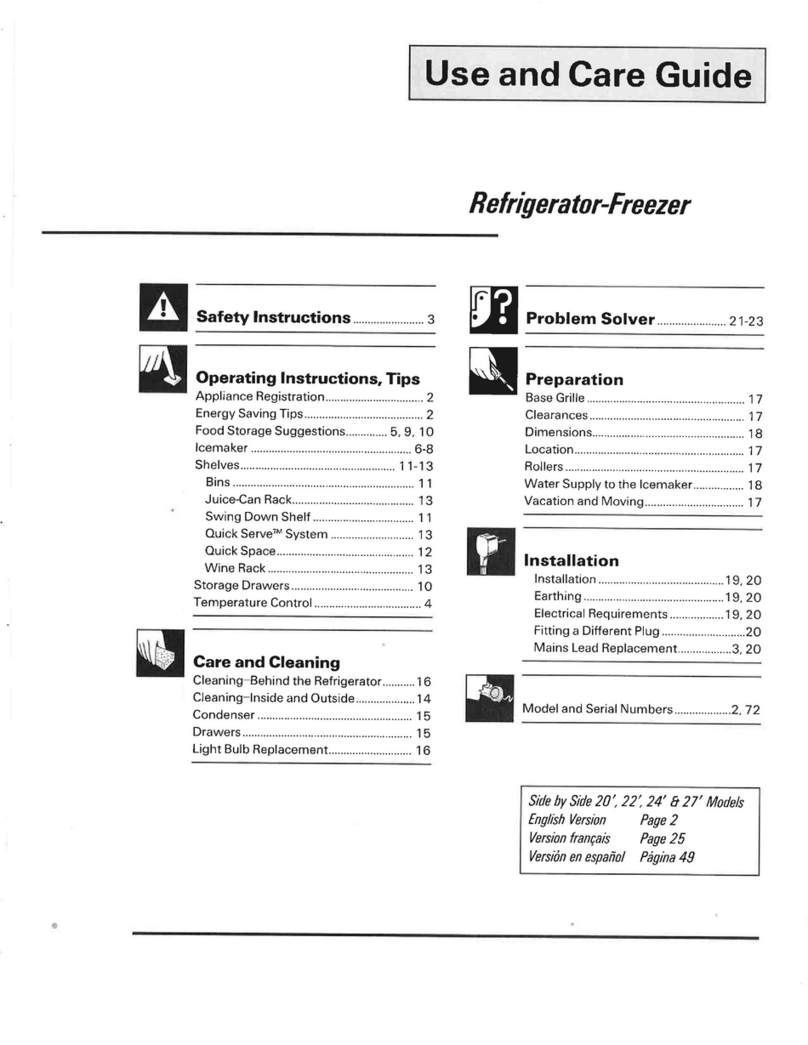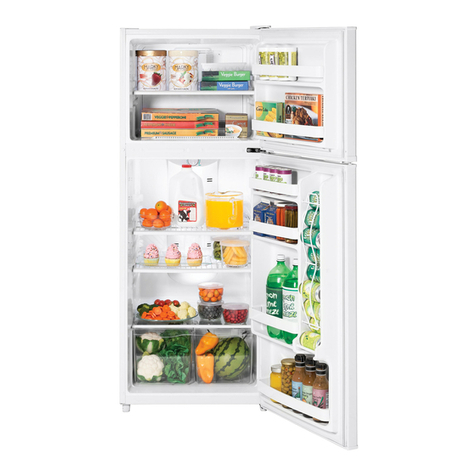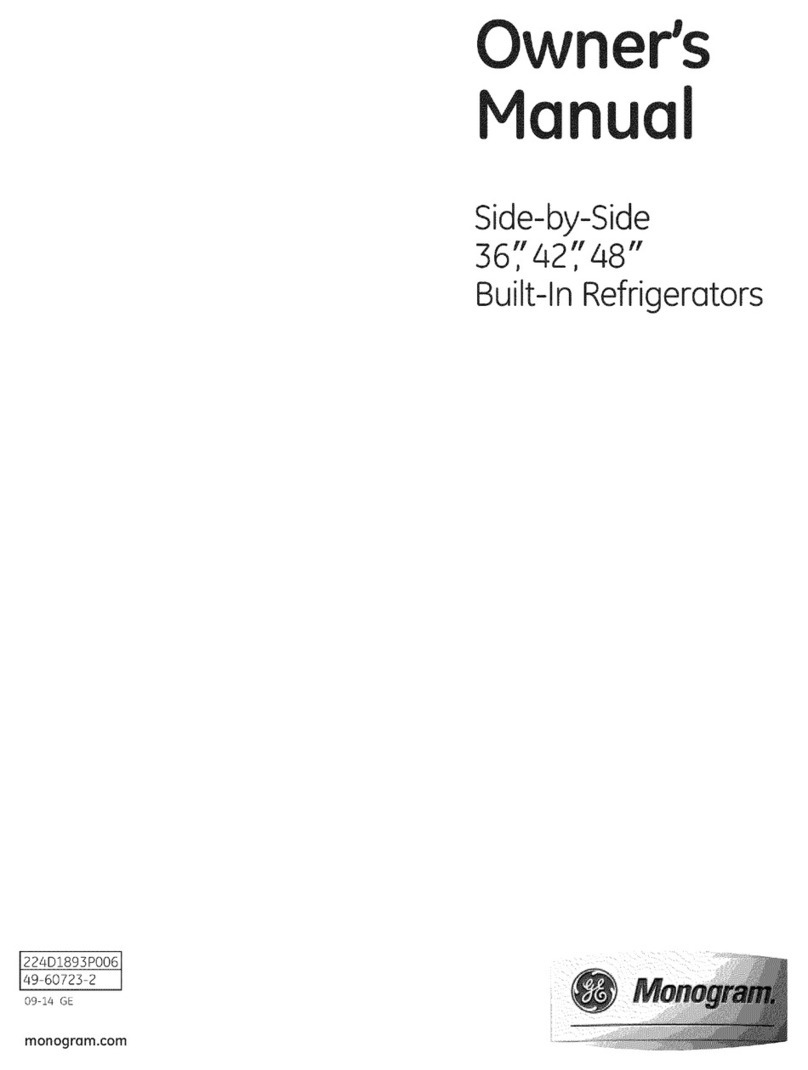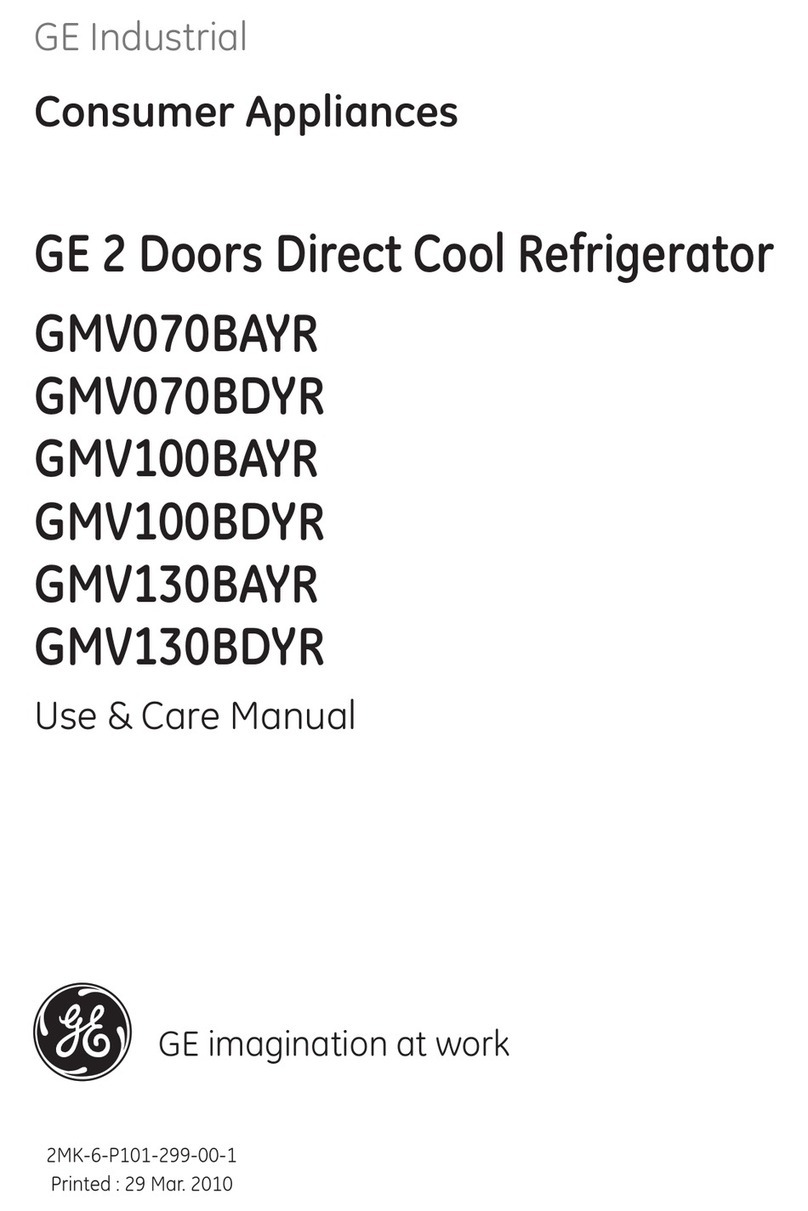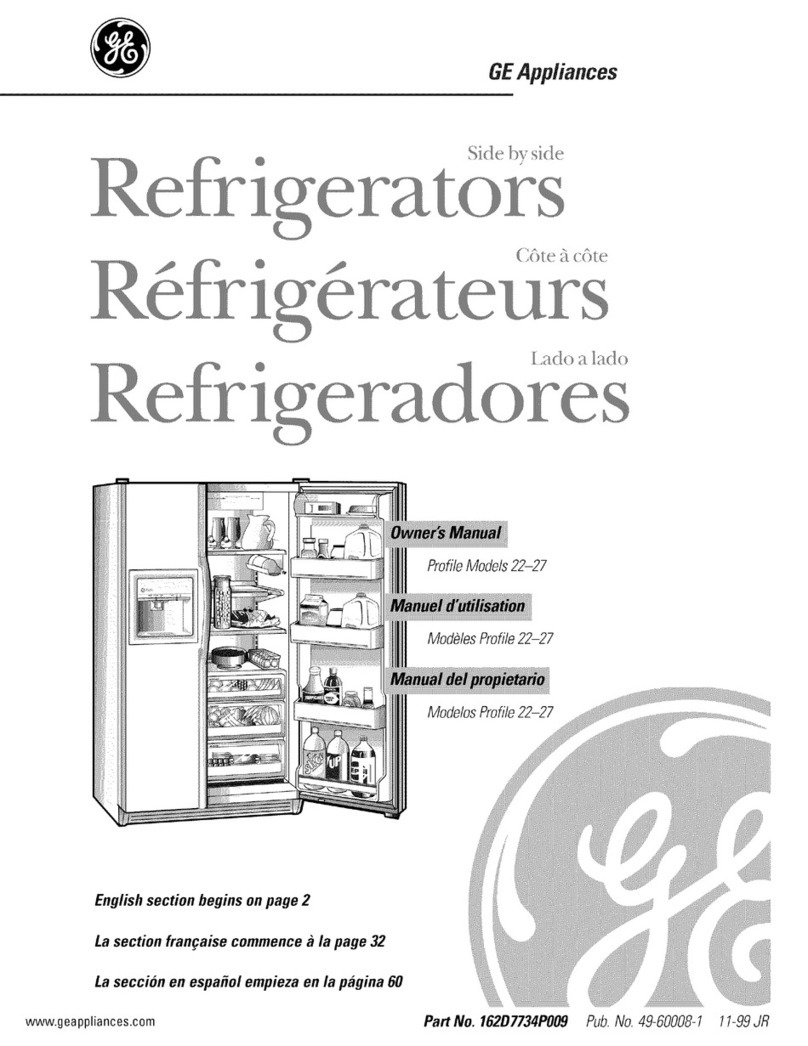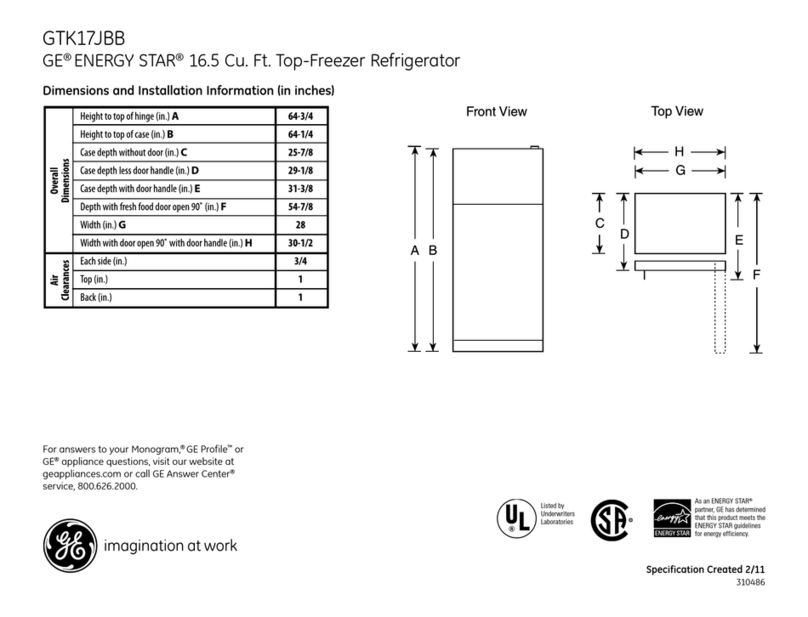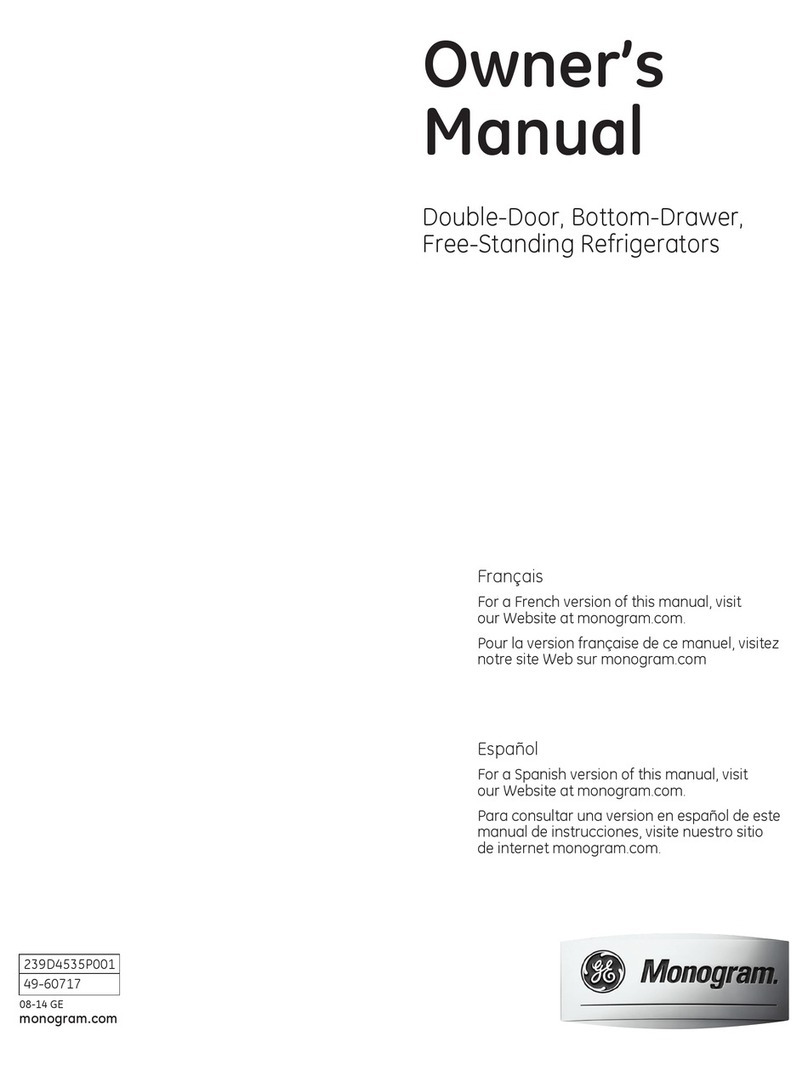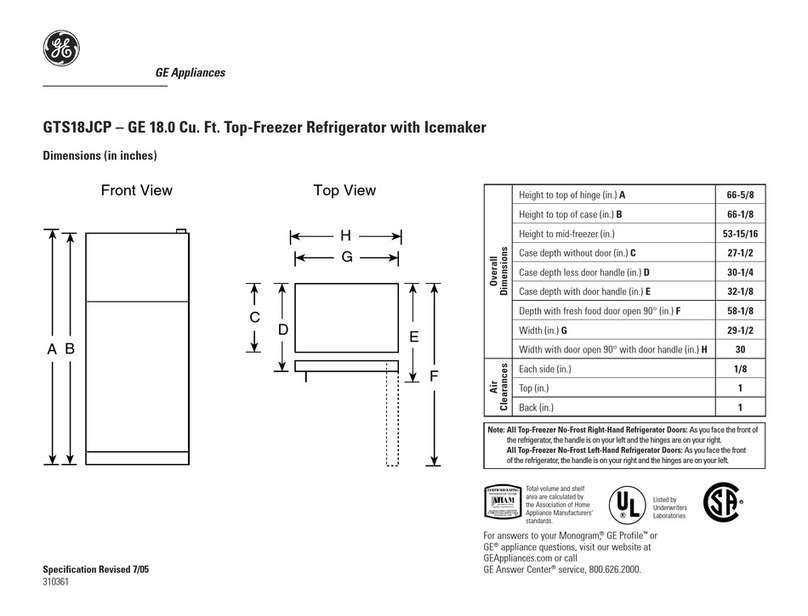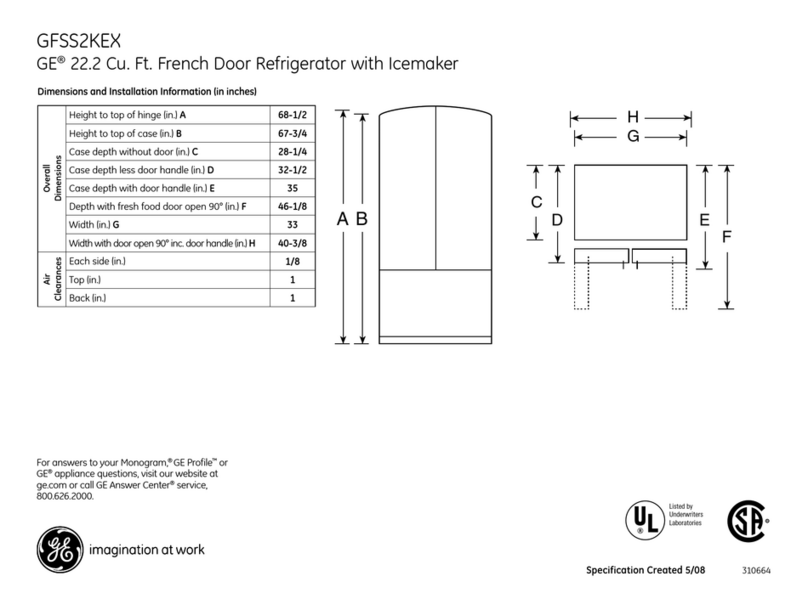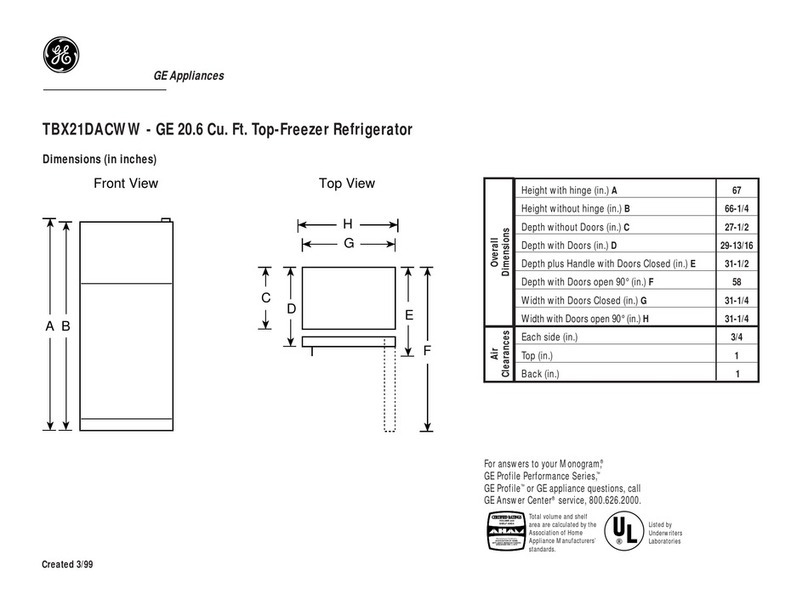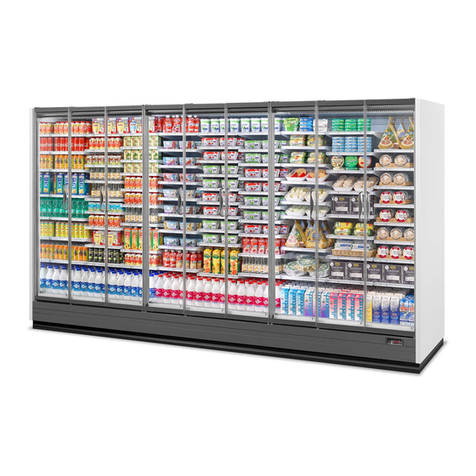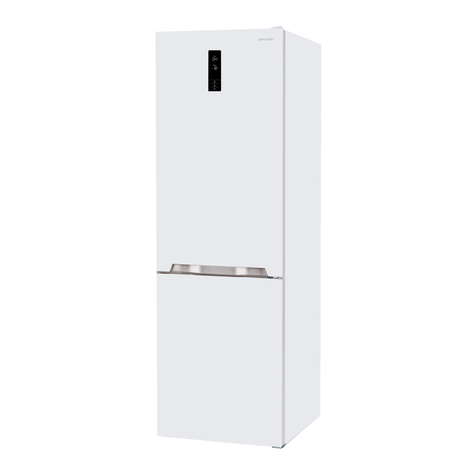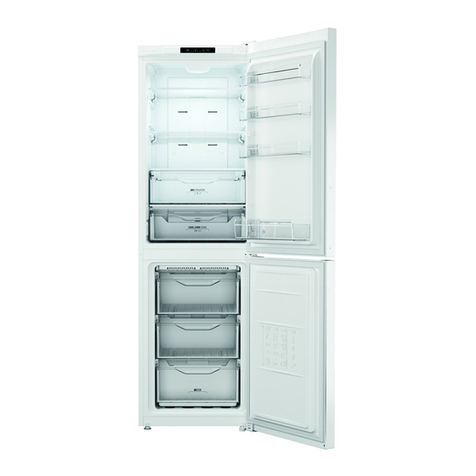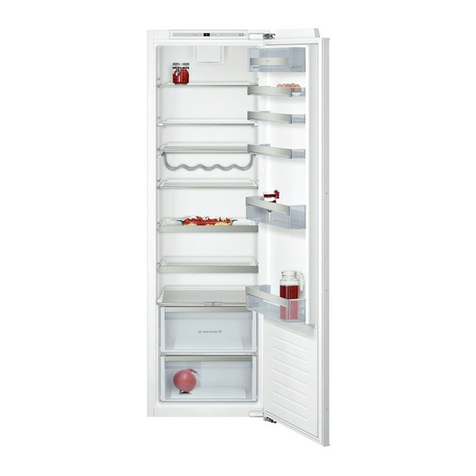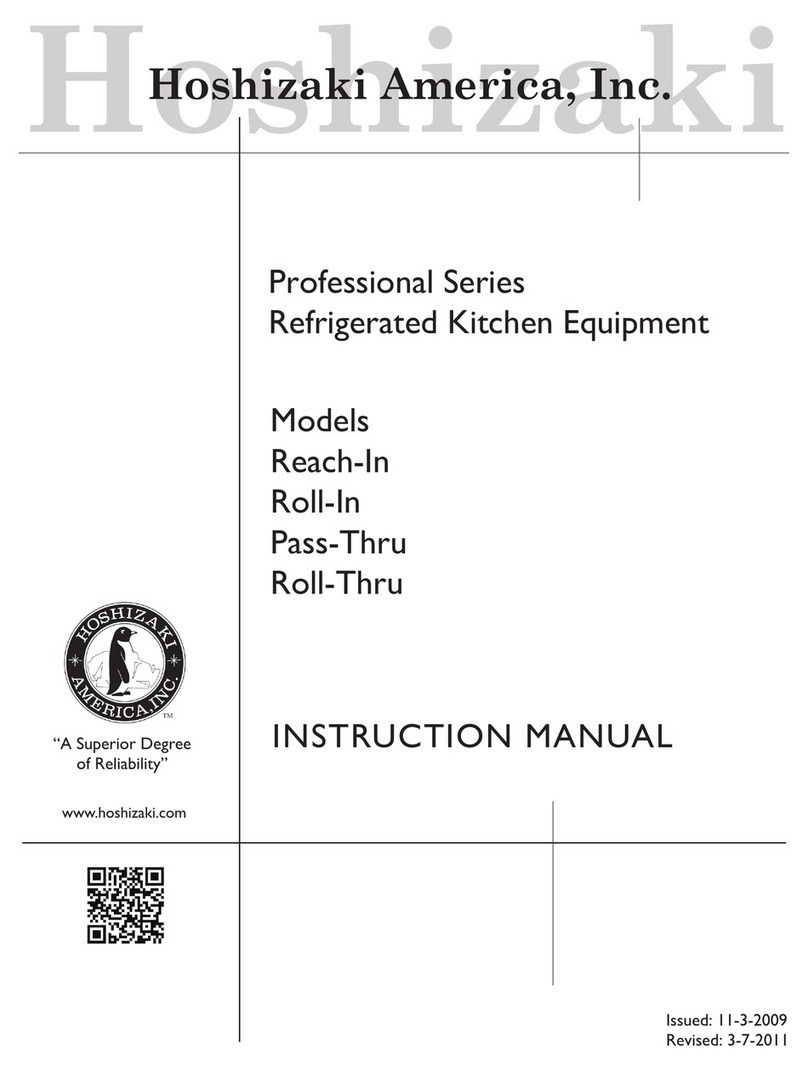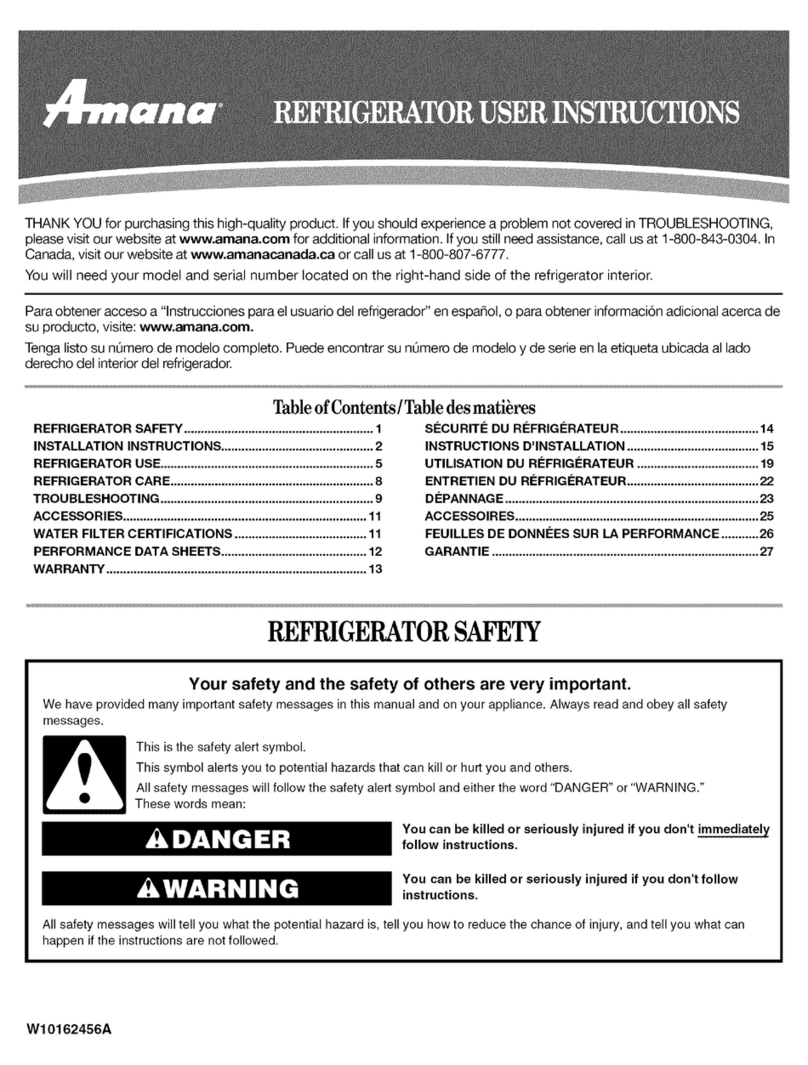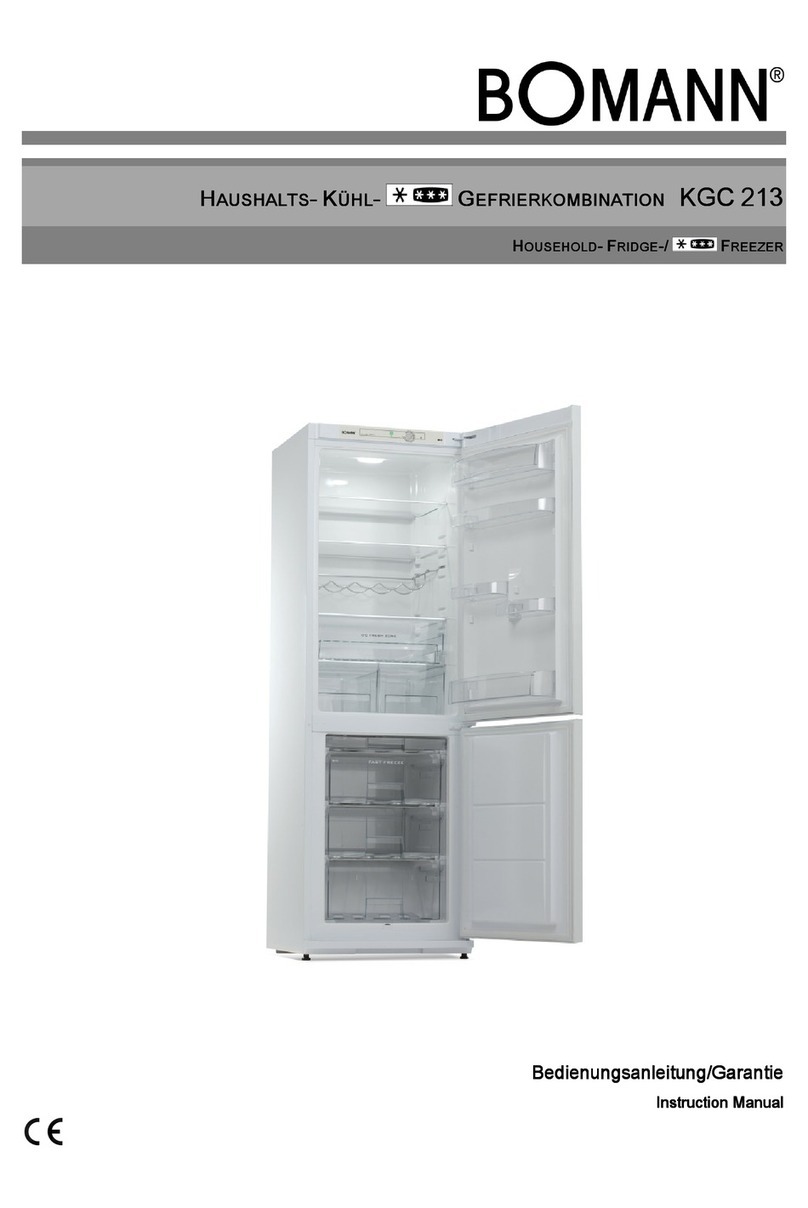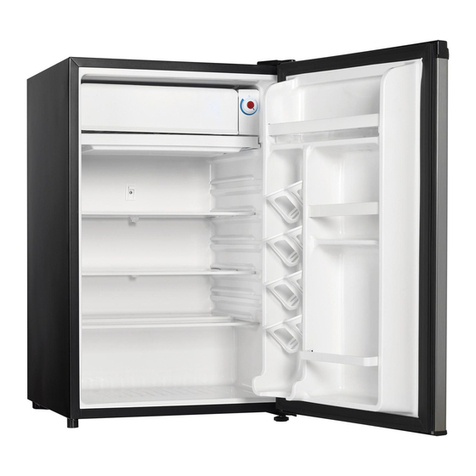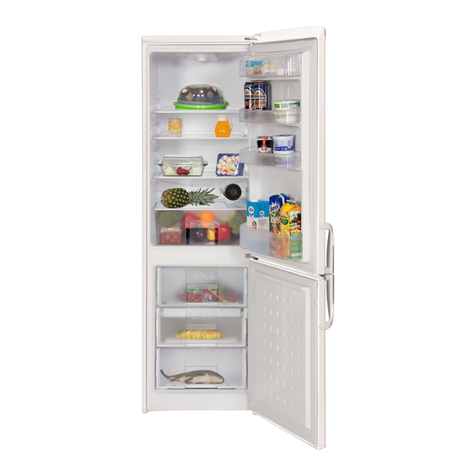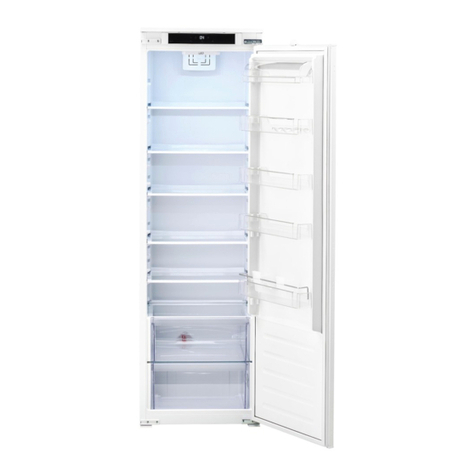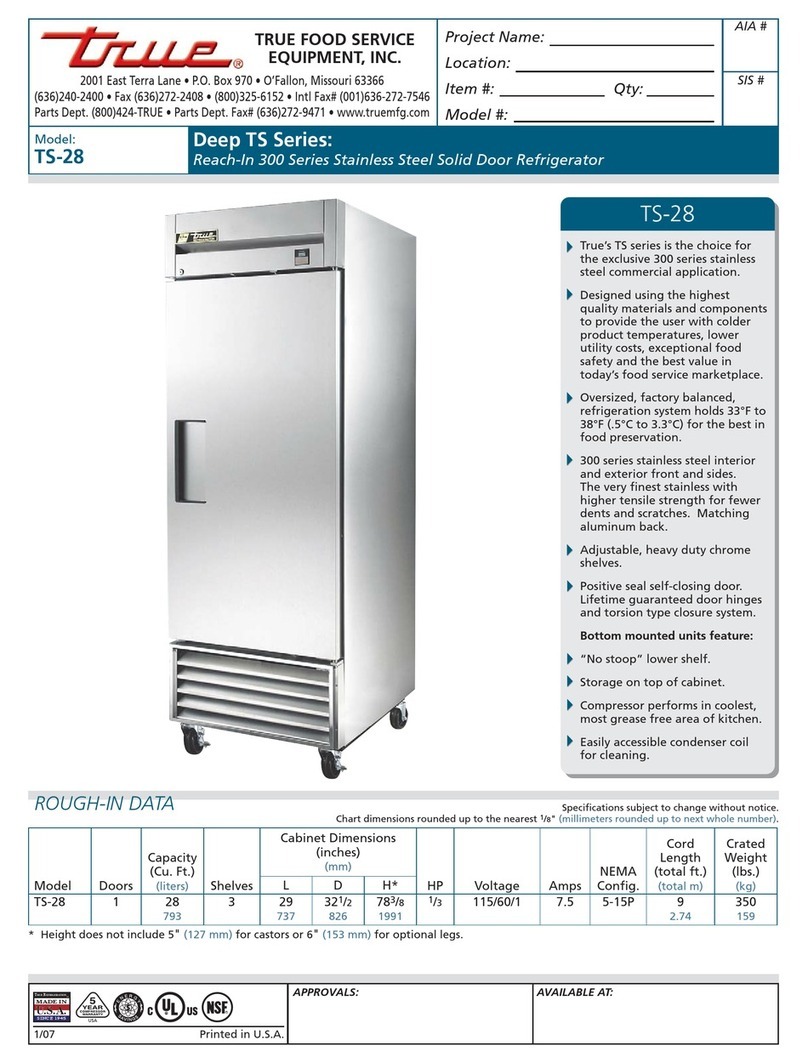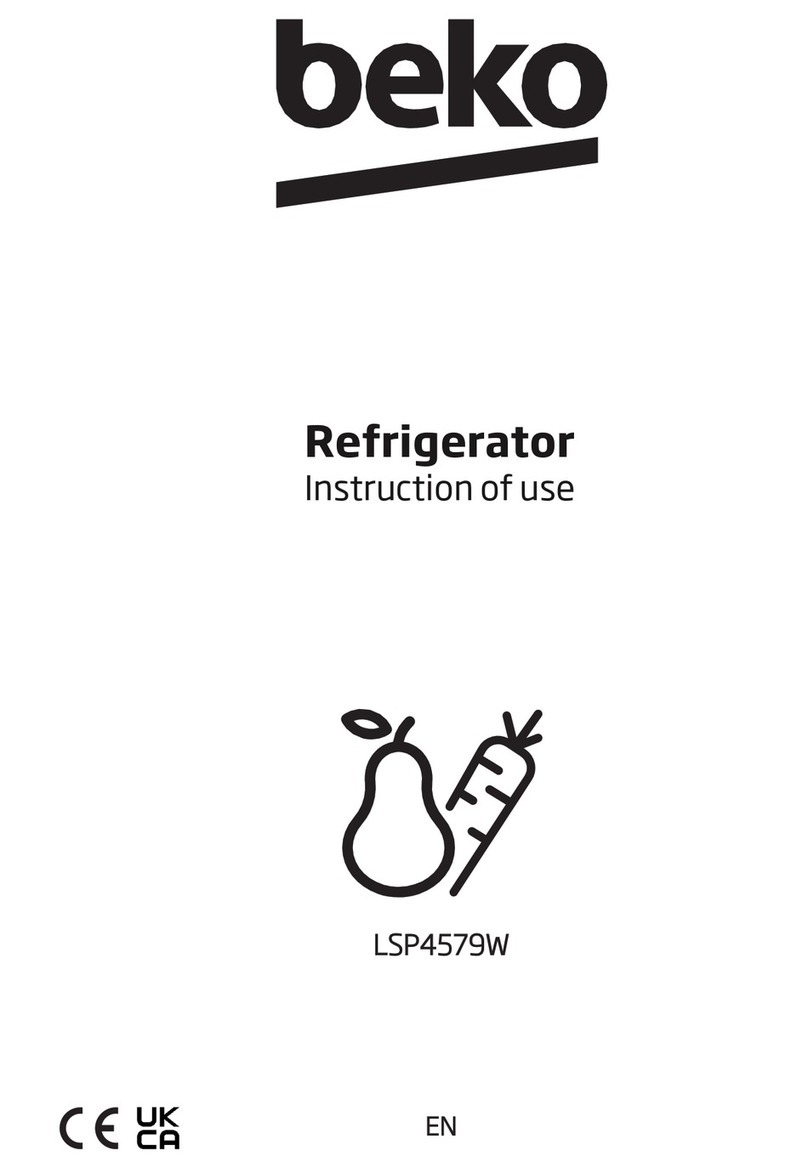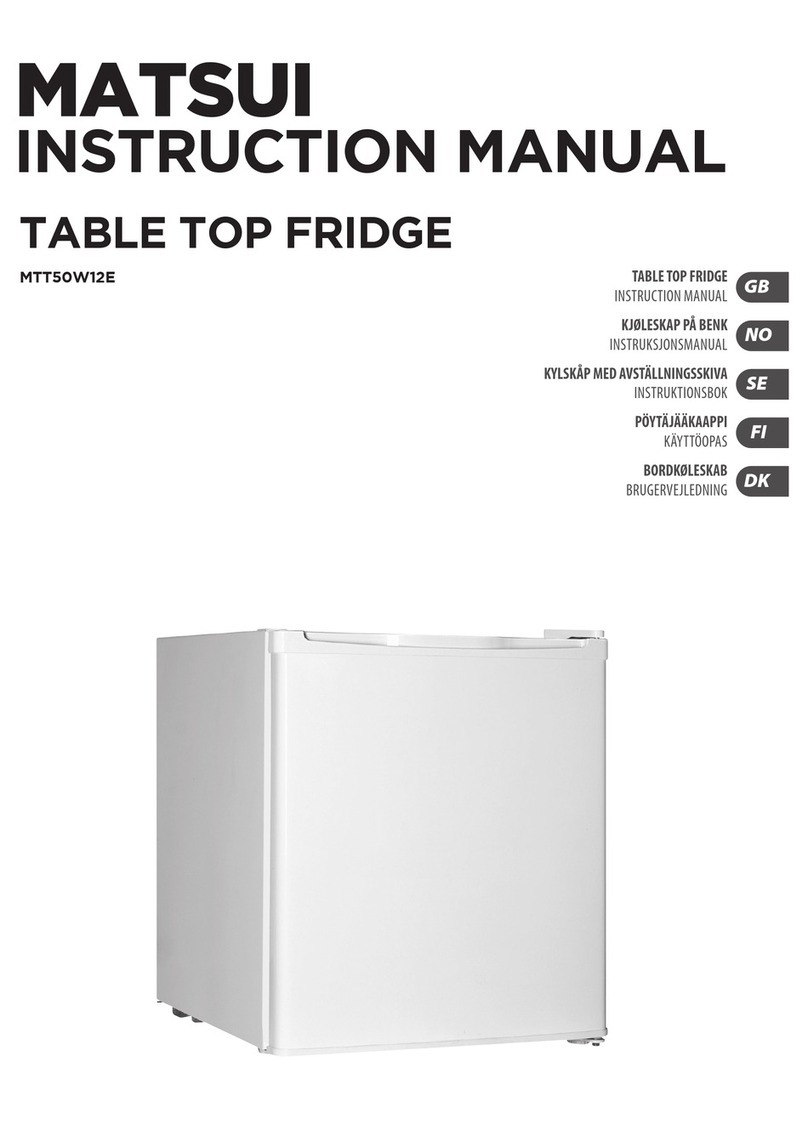FOOD STORAGE SUGGESTIONS
Suggested storage times for meat and poultry*
Eatingquality DAYSIN MONTHSiN
dropsafter REFRIGERATOR FREEZER
time shown AT35°to 40°F. ATO"F.
(2°to4°c.) Heoc,)
Fresh Meats
Roasts (Beef & Lamb). 3 to 5.......................... 6 to 12
Roasts (Pork &Veal). 3t05..................... 4to8
Steaks (Beef) .3 to 5. _6 to 12
Chops (Lamb). .3 to 5......... 6 to 9
Chops (Pork) .................. 3 to 5..... 3to 4
Ground& StewMeats.................1to 2.............. ,.........3to 4
Variety Meats 1 to 2 ._3 to 4
Sausage (Pork)..... 1 to 2 .... ".. _.. i ............ 1 to 2
Processed Meats
Bacon 7 ............... 1
Frankfurters......................................... 7................................1/2
Ham(Whole)....................................... 7........................... 1 to 2
Ham (Half) ' 3 to 5..................... 1 to 2
Ham (SJices)..... 3.................... 1 to 2
Luncheon Meats. 3to 5....... Freezingnot recommended.
Sausage (Smoked). 7.... Freezing not recommended.
Sausage (Dry &Semi-Dry) 14 to 21 Freezing not recommended.
Cooked Meats
Cooked Meatsand Meat Dishes...... 3 to 4..................... 2 to 3
Gravy & Meat Broth ....... 1 to 2 ......... 2 to 3
Eatingquality DAYSIN MONTHSIN
dropsafter REFRIGERATOR FREEZER
time shown AT35°to 40°F. ATO"F.
(2°to 4°C.} (-18_C.}
Fresh Poultry
Chicken& Turkey(Whole).............. 1to 2.............................12
Chicken (Pieces) ......................... 1 to 2....................... 9
Turkey (Pieces) ......... 1 to 2, .6
Duck&Goose(Whole)..................... 1to2......................... 6
Giblets.. .1 to 2..... 3
Cooked Poultry
Pieces(CoveredwithBroth).. 1to 2.......................... 6
Pieces (Not Covered) ............. 3 to 4 ........... 1
Cooked Poultry Dishes................ 3 to 4..................... 4 to 6
Fried Chicken .... 3 to 4............ 4
(Otherthanfor meats&poultry) FREEZER
Most fruits and vegetables....... 8-12 months
Lean fish...... ....... 6-8 months
Fattyfish, rollsand breads,soups,stew,casseroles........2-3months
Cakes,p=es,sandwiches,leftovers (cooked),
ice cream (original carton) ...... 1 month max
Meats. fish and poultry purchased from the store va Uin quali b, and age:
consequently, safe storage time in your ret}igerator will valT
*U.S. Department o[ Agriculture
Fresh Food Storage Tips
To store vegetables:
.Use the vegetable drawers_hey have
been designed to preserve the natural
moisture and fi-eshnessof prodnce.
.Co enng vegetables with a moist towel
help maintain crispness.
.As a fnrther aid to freshness,
prepackaged vegetables can be
stored in their original wrapping.
Unfrozen meats, fish, and poultry:
.Always remove store wrappings.
.Rewrap in fi_i1. plastic wrap or wax paper
and refrigerate immediately.
Cheese:
.Wrap well _ ith wax paper or alumimm_
foil. or put in a plastic bag.
.Carefully wrap to expel air and help
prevent mold.
.Store prepackaged cheese i n its own
wrapping if you ,a ish.
Tips on Freezing Foods
There are :_essential requirements for efficient home fi'eezing.
1. Initial quality. Freeze only top-quality ibod\. Freezing retain
quality and fhlvor: it cannot improve quality.
2. Speed. The quicker fi'uits and vegetables are frozen after picking,
the better the frozen product will be. You' I! _ave time, too, with less
culling and sorting lo do.
3. Proper packaging. Use food wrap designed especially
for freezing.
To freeze meat, lists and poultry, wrap wel! in freezer-weight foil (or
other heavy-duty wrapping material ). forming it carefnlly to the shape
o1'1he conicnls. Th is expel\ air. Fold and crimp ends of the package to
pro_ idea good. lasting seaL I)on't refreeze meat that has been
completely lha_ ed; meat. whether raw or cooked, can be fi'ozen
successfnlly onl,,, once.
Fine-quality ice cream, with high cream content, will nornmlly
require slightly lower temperatures than more "'airy" already packaged
brands with low cream content,
.It w i I I be necessary to experiment to determine the freezer
compartment location and temperature control _ettbg to keep your
ice cream at the right ser_ i ng temperature.
.The rear or"die freezer compartment i s s] ightl y colder than the fi'ont.
,,\),w techniques are cnn_tamh' hein,_ developed, ('_m_ulr die Colmtv
Ih'te!;don .%rvice or vo,r /o( ag UdliS" Com!_am /or flu" ].tevt
.!fi)rmuti(m im /?,'ezin,_, am[ _tori_t_ fi:ods.
8
